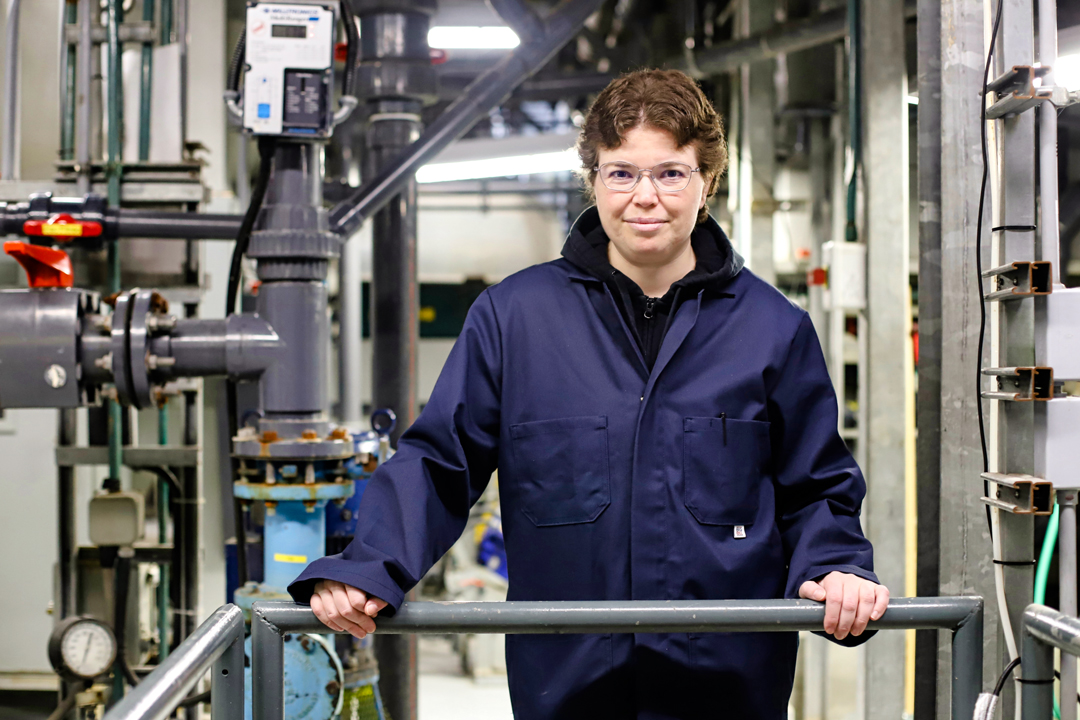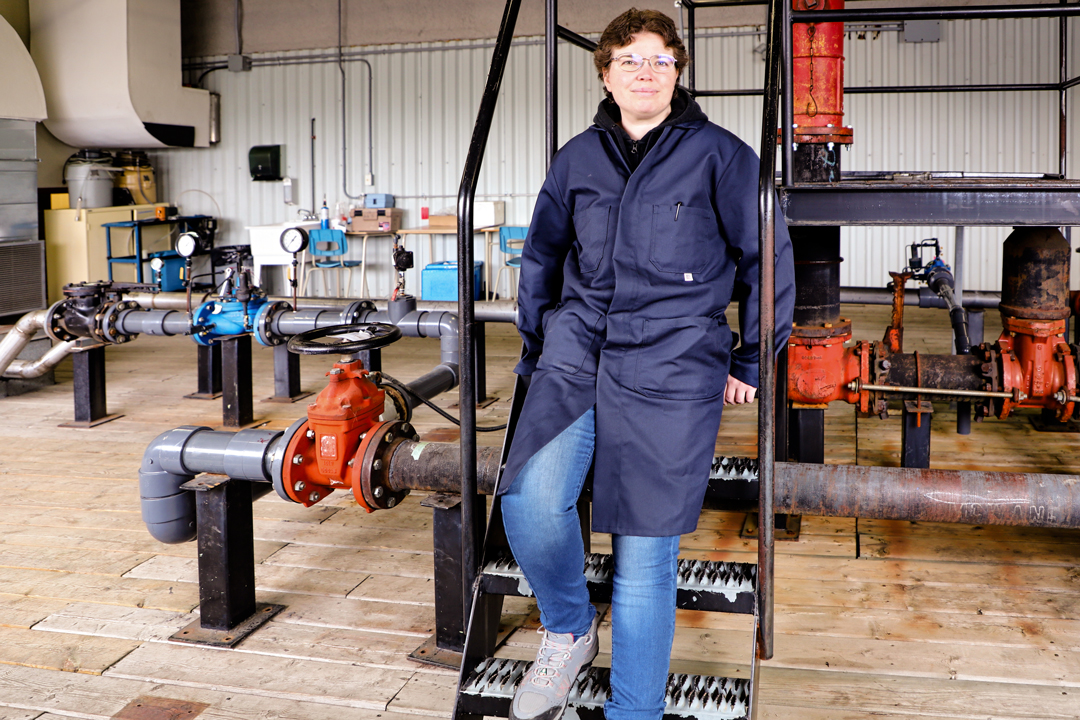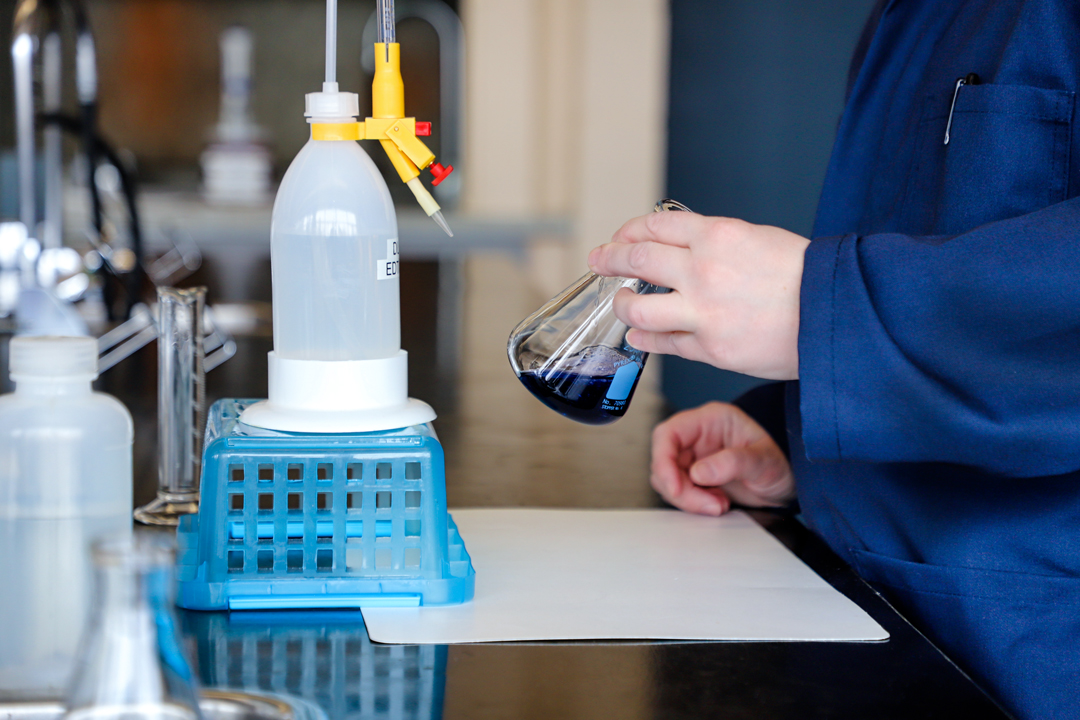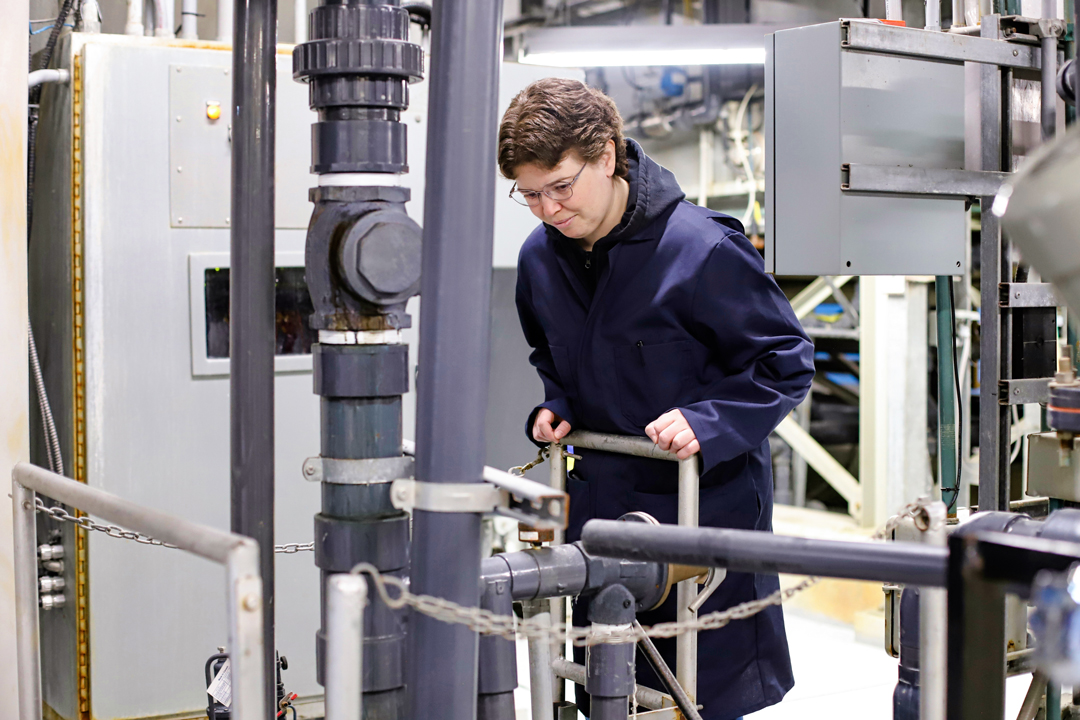Nathalie Boujard was born near Grenoble, a city in the Auvergne-Rhône-Alpes region of southeastern France. After studying secretarial studies and security prevention, she worked as a police officer and then as a manager of a remote surveillance team. In addition, she was running a horse breeding business until she tragically broke her spine in an accident. "I had no choice. I had to find a new career because my professional activities were no longer possible. I thought about my interests," she says.
"My horses would drink from a spring that I did not quite trust. Water was an obvious choice. While looking for a profession that reflected this interest, I discovered a training program offered in Québec and the organization Québec métiers d'avenir. This organization helps people like me to come and study in Canada. My spouse, a retired military and heavy truck driver, was ready to come on this adventure with me, so we decided to go for it."
Nathalie and her family had vacationed in Québec a few times, but when they arrived at Pierre-Elliott Trudeau airport on December 24, 2020, in the middle of the pandemic, they were shocked. "It was deserted!"

Between France and Québec
 Nathalie Boujard chose a new career path when she was 30 years old. Her spouse and daughter, who is 5, have supported her choice.
Nathalie Boujard chose a new career path when she was 30 years old. Her spouse and daughter, who is 5, have supported her choice.For the administrative procedures, be it the visa application, registration, finding an apartment or a school for her daughter, Québec métiers d'avenir was a source of information she knew she could count on. "Unlike many government websites where the information is dense and confusing, the QMA website details everything step by step. When in doubt, you can get an answer within 48 hours. Everything is clear and easy. They really take care of international students."
A Unique DVS
 The Centre de formation professionnelle Paul-Gérin-Lajoie in Vaudreuil-Dorion has been offering this specialized DVS for 37 years.
The Centre de formation professionnelle Paul-Gérin-Lajoie in Vaudreuil-Dorion has been offering this specialized DVS for 37 years.The Centre de formation professionnelle Paul-Gérin-Lajoie in Vaudreuil-Dorion has been offering the DVS* specialized in water treatment for 37 years. The need to train qualified operators was born in 1960 in response to the increasingly complex water treatment facilities. It is the only training centre that offers this DVS in Québec.
Unparalleled Facilities
 Nathalie chose this field of expertise because of her interest in environmental issues.
Nathalie chose this field of expertise because of her interest in environmental issues.This centre has a facility that is unique in Canada, if not North America, with a school/plant hybrid where students learn about drinking water production and wastewater treatment. "We have the opportunity to learn about all the systems that we will work with in our future workplaces and prepare ourselves for all eventualities," explains Nathalie. "We practice a lot. It is a field where the rules are bound to change, but our training equips us to be ready for these changes."
Taking Action for the Environment
 Nathalie and her family settled near her school in Vaudreuil-Dorion, but plan to move to Saguenay after graduation.
Nathalie and her family settled near her school in Vaudreuil-Dorion, but plan to move to Saguenay after graduation.Nathalie chose this field of expertise due to her curiosity about environmental issues. Among the skills needed for this training, she mentions an interest in chemistry and math. "You have to be meticulous, have good analytical skills, and be able to work alone, independently."
Water treatment plant operators operate filtration, pumping, disinfection and purification systems. They regulate and monitor treatment processes and conduct water sampling and analyses. The trade consists mostly of monitoring and mechanical maintenance, but operators must be responsible, self-sufficient and able to take appropriate action in emergency situations.
"You have to be meticulous, have good analytical skills, and be able to work alone, independently."
Consult other videos related to the trade and training under the Useful links and videos tab on the Conduite de procédés de traitement de l'eau program page*.
Labour Shortages in the Sector
The labour shortage affecting many Québec companies has not spared this sector. The need for qualified workers in municipalities is dire. Newspaper Le Droit recently reported that 90% of graduates find a job once they are done their training.
Retirement and increased workloads are putting pressure on this occupation which is directly linked to public health. No matter the size of the city, drinking water and wastewater plants are having trouble recruiting workers. "If there are no operators, then there is no drinking water or wastewater treatment," says Nathalie. This trade is regulated: every graduate must obtain their attestation of competency from Emploi-Québec.
A Male-Dominated Trade
There is only one other woman in Nathalie's group. Being the exception in her career choice has never been a hindrance. "It has never stopped me, and when I think about it, I have always been in non-traditional sectors." To attract more women, she believes it is important to publicize this little-known trade and reassure women considering this profession that the job's physical demands are reasonable.
A Life in Québec
Nathalie and her family have settled in Vaudreuil-Dorion, near her school. After graduation, they plan to settle in Saguenay near the mountains that remind them (a little) of home. When we spoke to her, Nathalie had just returned from an internship at the Jonquière filtration plant. She hopes to find work in the area and acquire a horse, as this is something she misses dearly. Her back is doing much better, so this should be possible.
Everything is going well. "Work-life balance is very important here. We enjoy a good quality of life." For those who are hesitant about seeking out new skills in vocational training, Nathalie advises taking the time to reflect. "Life in Québec is not perfect, but it is different, and that feels good. With willingness and motivation, nothing stops you from going for it and succeeding."
*Program offered in French only: Conduite de procédés de traitement de l'eau.
